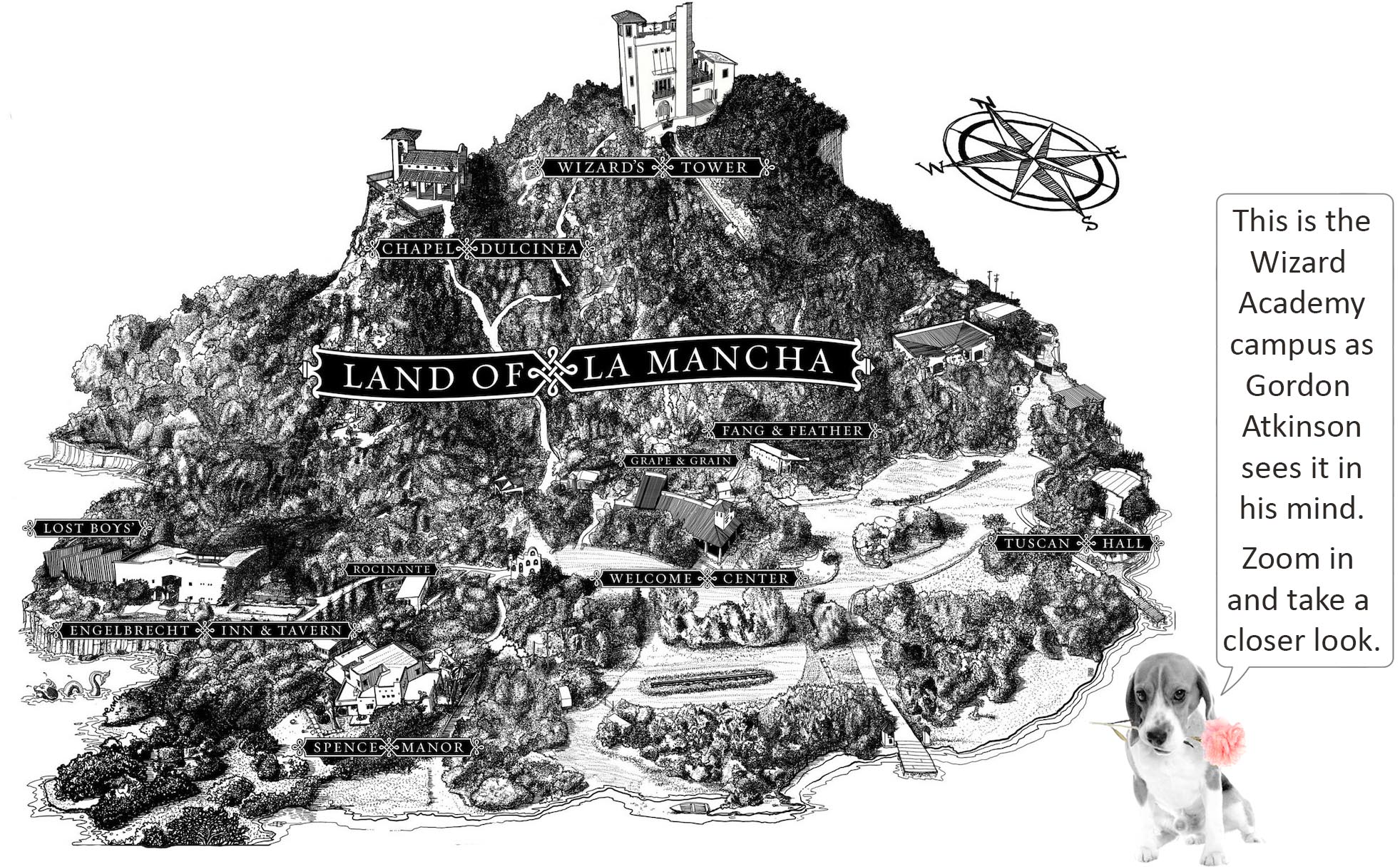Gordon Atkinson’s Land of La Mancha is the finest literary work of loneliness that has been chronicled since Henry David Thoreau spent 2 years on Walden Pond.
Here is how Thoreau opens that most iconic of early American books:
“When I wrote the following pages, or rather the bulk of them, I lived alone, in the woods, a mile from any neighbor, in a house which I had built myself, on the shore of Walden Pond, in Concord, Massachusetts, and earned my living by the labor of my hands only. I lived there two years and two months.”
Walden Pond, by the way, is only 2.2 miles from the old North Bridge in Concord where a British soldier fired “the shot heard ’round the world” that triggered the Revolutionary War.
Come with me now to July, 1845 when Henry David Thoreau first arrived at Walden Pond:
It has been only 69 years since Thomas Jefferson wrote that document by which 13 colonies of England broke away from King George and banded together to form this baby nation. (To put this in perspective, it has been 69 years since Chevrolet introduced the Corvette. – RHW) There are tens of thousands of Americans today who can remember growing up in the 13 colonies. They can recall reading the newspapers of Benjamin Franklin with his constant showering of articles advocating “No Taxation Without Representation” and how their fingertips became blackened by newspaper ink that was not quite dry.
Florida became the 27th state 90 days ago and Johnny Appleseed died 15 days later. There is talk of the Republic of Texas also becoming a state. The newspapers of New York are buzzing about a new poem by Poe in which a raven walks around saying, “Nevermore.”
That was America on the day Henry David Thoreau wandered off into those woods from which he and his book Walden would emerge 2 years and 2 months later.
You’ve never read Walden? Here is a short passage from “Brute Neighbors,” one of the later chapters:
“The mice which haunted my house were not the common ones, which are said to have been introduced into the country, but a wild native kind not found in the village. I sent one to a distinguished naturalist, and it interested him much. When I was building, one of these had its nest underneath the house, and before I had laid the second floor, and swept out the shavings, would come out regularly at lunch time and pick up the crumbs at my feet. It probably had never seen a man before; and it soon became quite familiar, and would run over my shoes and up my clothes. It could readily ascend the sides of the room by short impulses, like a squirrel, which it resembled in its motions. At length, as I leaned with my elbow on the bench one day, it ran up my clothes, and along my sleeve, and round and round the paper which held my dinner, while I kept the latter close, and dodged and played at bopeep with it; and when at last I held still a piece of cheese between my thumb and finger, it came and nibbled it, sitting in my hand, and afterward cleaned its face and paws, like a fly, and walked away.”
Gordon Atkinson is still writing his book, Land of La Mancha, but 3 days ago he posted 25 entries from the journal he has been keeping since the day he became the inaugural artist-in-residence at Wizard Academy.
Gordon and I have not yet spoken. You will understand why when you read what he has written.
Roy H. Williams
PS – Next week’s Monday Morning Memo is titled “How to Win in Business” and it contains a bunch of stuff I’ve never heard the wizard say before. – Indy Beagle
 Ann Papayoti could easily have become bitter. She lost an infant child, had another born with epilepsy, and was married to a belligerent and abusive husband. But Ann chose to move forward. Today, she is a successful author and life coach who helps others overcome their setbacks. Ann teaches others to “shift” and embrace a life-affirming perspective. This week she talks with roving reporter Rotbart about how to transform hardships into blessings. It’s always interesting at MondayMorningRadio.com
Ann Papayoti could easily have become bitter. She lost an infant child, had another born with epilepsy, and was married to a belligerent and abusive husband. But Ann chose to move forward. Today, she is a successful author and life coach who helps others overcome their setbacks. Ann teaches others to “shift” and embrace a life-affirming perspective. This week she talks with roving reporter Rotbart about how to transform hardships into blessings. It’s always interesting at MondayMorningRadio.com
